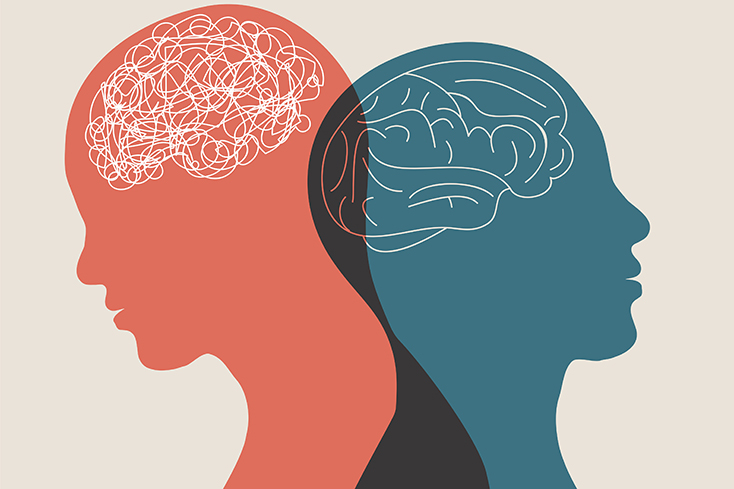
As I have learned on my mental health journey, managing and coping with the symptoms of bipolar disorder can be challenging. When I was first diagnosed in my mid-twenties, I struggled to fully accept this new reality; frankly, I barely listened to my doctor explain my diagnosis and treatment plan. I followed the recommended treatment plan for a while, but once I started to feel better, I stopped taking my medication and the symptoms returned.
My recovery did not begin until I truly accepted that managing my illness would be a lifelong endeavor — an endeavor that requires paying close attention to my warning signs. Once I came to this realization, my life slowly began to change for the better. Now, I fully understand my symptoms, and I have become in tune to my body; as a result, I can identify the causes and warning signs of a possible episode almost immediately. When I determine that it is going to be a difficult day, I am able to prepare myself and use my coping skills to manage my symptoms.
Some possible causes and warning signs of my episodes, which I will share in hopes of helping others recognize their own, include:
1. Prolonged Stress
Almost everyone will deal with some form of stress in their lives, but I’ve learned that stress can impact me differently than those who do not live with my mental health condition. If my body is under a lot of stress — personal, professional or a combination of both — for a long period, I am at a higher risk of mood swings, which can evolve into a manic episode.
When I experience prolonged stress, my thoughts will begin to race, and my brain struggles to turn off and rest. When I reach this point, my thoughts are scattered and sometimes even doing the simplest tasks is overwhelming. Naturally, this takes a physical and emotional toll.
2. Lack of Sleep
When I notice that I’m not sleeping well, I start to pay close attention to my mental state. Often, if I’m not sleeping, I find that this is due to racing thoughts consistent with a manic episode. What begins as less frequent sleep can easily turn into staying awake for 24 hours — a clear sign of a manic episode.
Of course, this lack of sleep will make my physically tired, but often the most difficult symptom is my mind is unable to rest. I may find myself lying in bed, tossing and turning. Usually, my best coping mechanism is staring at the ceiling and praying I will fall asleep. To avoid these scenarios, I do my best to maintain proper sleep hygiene to keep my physical and mental health in check. For me, this means getting at least eight hours of sleep a night.
3. Unexpected Reactions to Medications
Over time, I’ve learned that unexpected changes to my routine and care regimen, including medications, can trigger an episode. Recently, I took an over-the-counter allergy pill, and within the next few days, I noticed my moods were changing. I spiraled into a depressive episode in which I cried uncontrollably and had no energy at all. A few days later, I found myself feeling irritable, wanting to spend lots of money and talking a mile a minute.
After a few weeks of this pattern, I was able to identify this behavior as a bipolar episode that I would need to “ride out.” As I weathered the onslaught of symptoms, I began to reflect on what I had done differently recently, and I remembered that the only change to my regimen was the allergy pill. So, I stopped taking the pill and replaced it with a different one. Within a few weeks, I was back to my usual self.
4. Changing My Routines
Over the years, I have learned that I have a “type A personality,” and I thrive when I stick to a rigid schedule. I need this to keep myself in order. I do not like chaos; my house is always clean, and I make appointments well in advance. If my schedule gets rearranged unexpectedly or I fall behind, I may begin to panic and spiral.
Unfortunately, this character trait is also accompanied by high expectations of myself and others; I expect people to work at the same level of intensity as I do, which can cause me to have added stress in my professional and personal life, which could potentially trigger an episode. However, to manage my mental health, I do my best to organize the things I can control and try to remain flexible whenever possible.
Ultimately, I feel blessed to understand my illness and my body well enough to identify the warning signs of a possible episode. By knowing myself and my mental health condition, I am better equipped to manage and cope with bipolar disorder. This is what helps me to find hope through that storm.
Tammy Ozolins is a full time educator, residing in Richmond, Va. She is a mental health advocate and hopes to encourage people living with mental health conditions to live their best lives.

